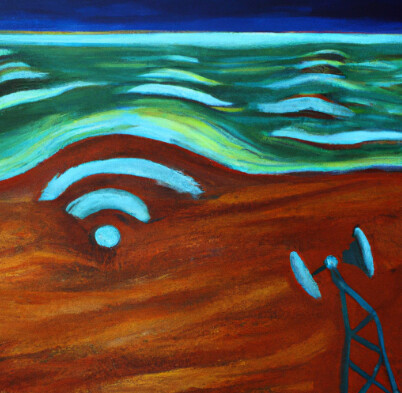Hello All.
Do radio waves travel longer distance on water than land?

Hello All.
Do radio waves travel longer distance on water than land?

Yes due to ducting.
Water surface act as waveguide.
What about radio waves effect due to sea wave heights?
Especially in hot weather, the water start to vaporize and then we’ll have 2 surfaces (water and air) and in between we have a gradient of vapor.
So radio wave will reflect between both surfaces and travel longer.
It’s a planning nightmare.
Not sure about the impact of wave height.
Did not read about it before.
But the sure thing is that sites near water surfaces like seas and river tend to have longer propagation and overshooting.
Ok. Thanks.
Any idea about how offshore radio communication planning is done based on receiver antenna height?
It’s better to direct the azimuth crossing the water surface, not parallel to it.
It will reduce the interfere due to overshooting.
Thanks!
What about evaporation duct height effect?
Waves will it get trapped and then travel longer?
Please explain more the point of “duct hight effect”…
I have see it here:
Interesting discussion on the RF propagation characteristics over water surface.
No, radio waves do not travel longer distances than water. In fact, radio waves travel slower in water than in air. The speed of radio waves in water is about 225,000 kilometers per second, which is about 75% of the speed of radio waves in air.
There are a few reasons why radio waves travel slower in water. First, water is denser than air, which means that it has more mass per unit volume. This means that radio waves have to interact with more water molecules as they travel through water, which slows them down.
Second, water molecules are polar, which means that they have a positive and negative end. This polarity causes water molecules to interact with each other, which also slows down radio waves.
Finally, radio waves can be absorbed by water molecules. This absorption is more pronounced at shorter wavelengths, which is why radio waves with shorter wavelengths cannot travel as far in water as radio waves with longer wavelengths.
So, while radio waves can travel through water, they do not travel as far as they do in air. This is why radio communication is not possible underwater. Instead, we use sonar to communicate underwater. Sonar uses sound waves, which travel much faster in water than radio waves.
Hi All & Good days.
I think what @shamshad , meaning travel here is wave propagation over the air is took longer on water surface rather than land surface. Not wave propagation on the medium it’s self (water or land). CMIIW.
wave propagation over the air is took longer on water surface rather than land surface, definitely I agree.
Because it’s reflectivity character that radio wave.
Higher conductivity on the material will provide more radio wave reflection on it’s surface, such as metal surface provide more reflection rather than brick or concrete surface.
Base on siemens.
Where we can find this reflection coefficient on propagation model such as SPM, Hata, Cost-231, etc ? can’t find, because it’s empirical propagation model.
But all those simplified propagation model providing space to tune each coefficient base on CW result, Drive Test Data, or MDT on each clutter model.
Hope can answer the question.